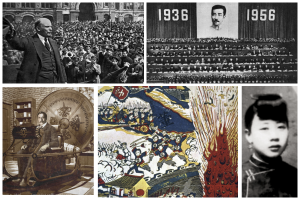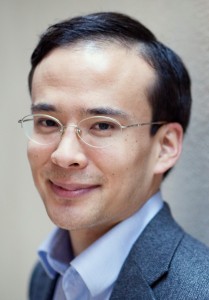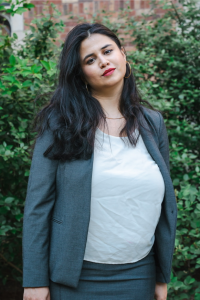The Modern Axial Age
with
Peter C. Perdue, Yale University
Steffen Rimner, University College, Dublin
Zaib Aziz, University of South Florida
EverScholar in New York
January 12-15, 2023
During the first half of the twentieth century, major political and cultural developments took a global form. Empires fell, revolutions spread, avant garde art movements exploded, and masses of people migrated across oceans and continents. All of these complex clashes and entanglements created what we now call modernity. Scholars have used the term “Axial Age” for the period of formation of great civilizations of ancient times; we use the the term “Modern Axial Age” to indicate that this period, also, was a time of extraordinary cultural and social dynamism. Artists and activists in China, the United States, and Europe, including Russia, all constantly interchanged ideas with each other. The major ideologies of nationalism, revolution, racism, anarchism, literary modernism, and artistic radicalism all became movements that embraced the globe.
The Qing empire of China, the largest political unit in the world, collapsed in 1911, to be replaced by the Republic of China. In 1917, the Bolshevik revolution in Russia inspired anti-colonial activists and Chinese revolutionaries with new visions of political change. In the arts, Chinese writers found inspiration in Western modern sources, while Western writers drew on Chinese sources to create new poetic forms.
In this seminar, by reading primary sources from China, Europe, and the United States, along with historical background, we will explore foundational concepts of the modern world in which China played a major role.
We begin with the year 1900, a time of epochal change in China. At the Paris exhibition early in the year, the imperial powers showed off their technology and colonial possessions; later in the year they invaded Beijing to put down the resistance led by the Boxers and Qing government. After this year, the Qing government survived, and launched important reforms, while radical writers like Qiu Jin expressed Western ideologies of nationalism and anarchism in classical poetic forms. In Europe, writers and composers created an Orientalist image of China which transformed Western aesthetic values. In Scandinavia and America, poets drew on classical Chinese sources to portray their own visions of modernity.
The Bolshevik revolution of 1917 inspired broader revolutionary visions in the imperial and colonial worlds. Wilson’s thesis of self determination did not support the end of empires in Asia; Lenin’s appeal to colonial revolutionaries to resist empire in the name of social revolution inspired many activists of multiple nationalities and religions. Americans like John Reed and Edgar Snow were eyewitnesses to these revolutionary events.
Chinese writers, inspired by dramatic Utopian visions from Western science fiction, drafted their own versions of future worlds. In the 1930s, artists like Lu Xun joined with radical Western artists to promote mass mobilization against the rising threat of Fascism.
Our previous seminar, in 2021, put China at the center, while exploring its many links to global events. This year, China participates actively, but only as one node of complex threads connecting Asia, Western Europe and the United States in fully globalized processes of revolution, artistic modernism, and progressive reform. Our world today faces many of the same ominous developments, in the form of terrorism, right-wing populism, dramatic changes in arts and media, and efforts to hold the liberal world order together. We expect that you will be inspired to see current affairs in new ways after delving into this period with us. Welcome to our exhilarating journey!
Our Lead Faculty:
Readings
All EverScholar courses actually start months before our meeting. After registration, you will receive all books and scholarly articles for the course, and will immerse yourself in great works curated by our faculty. “The Modern Axial Age” is no exception, with works ranging from contemporaneous writings to great books written by your own EverScholar professors. Primary sources will mix with authoritative texts to produce night after night of joy as you prepare for your return to the life of the mind.
Special Events
One of EverScholar’s unique and most beloved features are our Special Events; sessions at a number of well-known (such as a museum or Art Gallery) or less-known centers of collection and learning. “The Modern Axial Age” continues this tradition.
Special events being planned for this program include faculty- and/or guest expert-led visits to the Neue Galerie and the Museum of Modern Art, as well as a Chinese-centric site such as the Asia Society or the Museum of Chinese in America.
Beyond the Classroom
Everything that happens during an EverScholar program is enhanced by the fact that it takes place in a learning-promoting environment.
This program takes place at the University Club of New York City, 1 West 54th Street, in the cultural center of Manhattan. Discounted housing is available at the University Club.
Learn more about the experience!
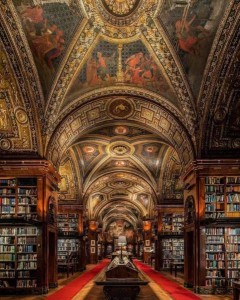
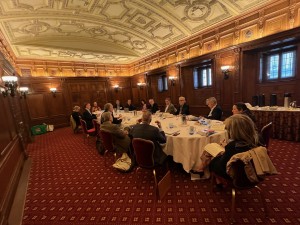
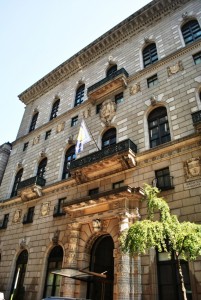
The course begins with a reception and dinner on Thursday…. and ends in late afternoon Sunday. The program cost is $1,995 per person. Deposit is $500 per person. Balance is due on November 15. Generous refund policies will be detailed on registration page when registration is opened (click on “Register Now” button for this information along with accommodation details when that button becomes available) – you can register without worries.
All EverScholar program attendees are required to be fully “up-to-date” on covid vaccination; we also require rapid testing on the day the course begins.
Looking forward to seeing you there!
